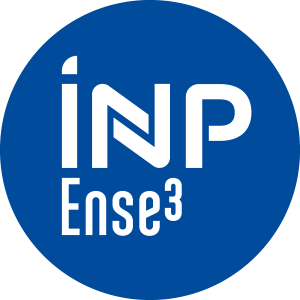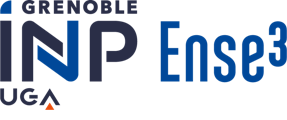
Informations générales
Number of hours
- Lectures 20.0
- Projects -
- Tutorials 20.0
- Internship -
- Laboratory works 20.0
ECTSECTS
3.0
Goal(s)
The first objective is to provide the knowledge to understand how the energy production is controlled based on electromechanical generators (dams, wind or tidal power, etc.).
The second objective is to accompany students on thermal machines in the same manner.
Responsible(s)
Laurent GERBAUD
Content(s)
Courses and tutorials
- Modeling electromechanical generators for control: synchronous machines and induction machines.
- Control of electric generators in isolated of classic grids, and notions of stability
- Control systems of energy production with electric generators at fixed speed or variable speed: hydroelectric production, tidal power, wind generation, etc.
_Experiment (computer simulations)_
Wind power systems and services, reactive power compensation generation, fuel cells, photovoltaic generation, storage through electric vehicle and filter in energy conversion.
Thermal machines
Basic knowledge of the operation of power systems.
Knowledge of electrical machines: synchronous machine, rotating magnetic fields, induction machine (desirable but not essential)
Fluids mecanics basics.
Test
Session 1
Continuous assessment (CC1) : Lab reports and presentations
Final exam (ET1) : written exam on the whole program
Session 2
Final exam : new assessment (ET2) to replace session 1 assessment (ET1)
Continous assessment : session 1 assessment (CC1) retained, it cannot be retaken
EN 60% + ER 40%
for the final exam, 1h75 on the thermal machine, 1h25 on the electrical machines
Calendar
The course exists in the following branches:
- Curriculum - Master of Engineering GEE - Semester 7-8
Additional Information
Course ID : 4EUAMTE6
Course language(s): 
You can find this course among all other courses.
Bibliography
Kundur, P. (1994). Power system stability and control (Vol. 7). N. J. Balu, & M. G. Lauby (Eds.). New York: McGraw-hill.


